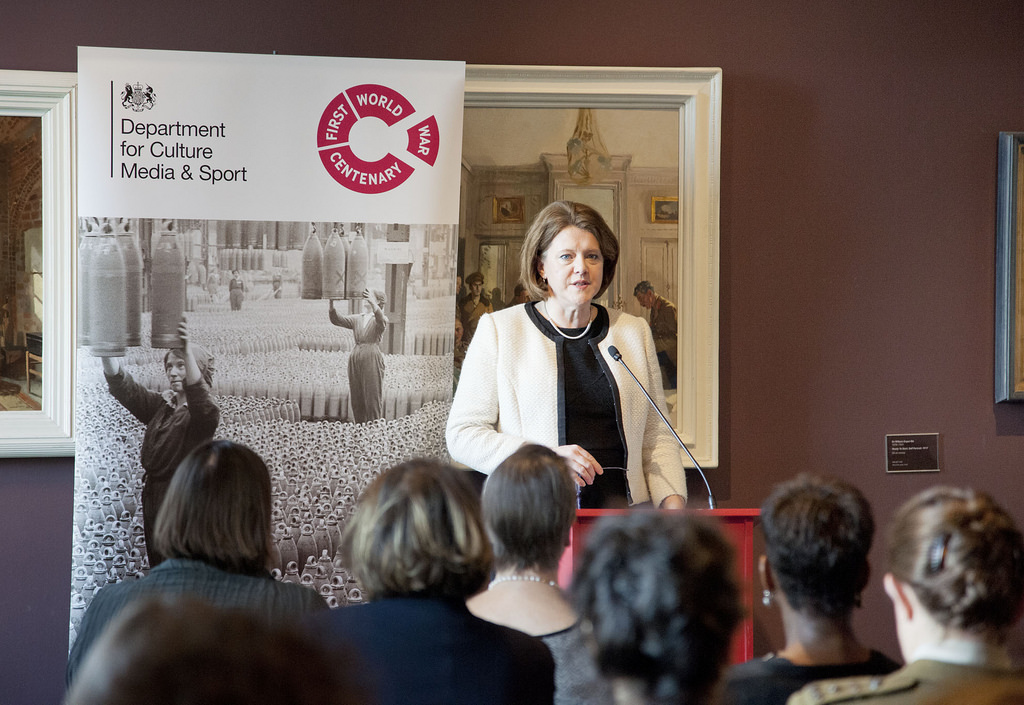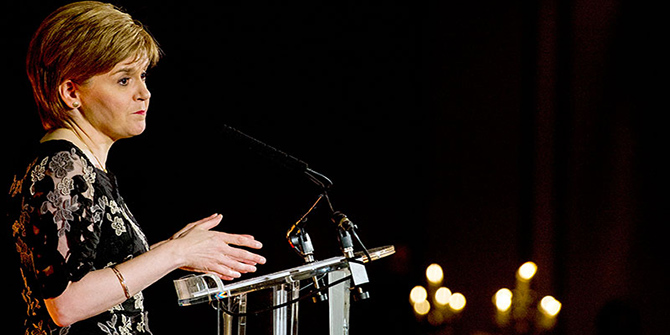The news that Maria Miller had decided to resign as Culture Secretary was not really much of a surprise. Matthew Flinders writes that the only real surprise was that she had toughed-out the media feeding frenzy and gradual but very clear loss of political support for so long. And yet beyond the sensational headlines the real – and arguably more important issues – remain unexamined.
Politics is a rough and sometimes brutal business. I’m sure that on Wednesday Maria Miller is more aware than most of this fact but it seems too obvious, slightly too clean and simple, to blame just one person for a political saga that has rolled-on for some time. In order to learn from this affair it is necessary to step back and examine the bigger picture in order to reveal where blame really lies. Indeed, what this less personalized account reveals is a set of blame-games at three levels.
At the first and most obvious level Mrs Miller really was to blame, if not for the incorrect claiming of expenses, but for treating the House with contempt. This is a critical point. Politicians at Westminster – irrespective of their party – will generally tolerate many failing and indiscretions on the part of their colleagues but standing up in the Chamber and giving such a brief and curt apology was a terrible error.
And yet Mrs Miller’s general attitude to the whole investigation over her expenses seems to have been generally dismissive. The Commons Standards Committee criticised her attitude during their investigation which it ruled was a breach of the parliamentary code of conduct. But why would a member of the Cabinet adopt an approach that was almost designed to ruffle feathers and prolong and investigation? Humble pie might not taste very nice but sometimes it needs to be eaten whether you believe you are hungry or not. I can’t help wondering what her ministerial aides and advisers – her spin doctors – were whispering into her ear as she adopted such a strident approach to the issue of her expenses. Whatever it was it clearly didn’t work but if anyone is to blame this morning then questions need to be asked of Mrs Miller’s team as a whole and not just the former minister herself.

Although far less sensational (and therefore by modern media standards less newsworthy) the bigger issue in the ‘blame game’ that needs to be unraveled is not so much Maria Miller or her team but the whole issue of parliamentary self-regulation. The principle that MPs should make the final decision over the disciplining of their errant colleagues has been stretched to breaking point and it seems hardly fair to blame Mrs Miller for the outcome of a self-regulatory system that has been the source of ridicule and concern for some time. The system is to blame for much of the chaos and confusion that has surrounded Mrs Miller. The big question does not relate to Mrs Miller or how £45,000 became £5,800 but to how we stop this situation happening again. Professional self-regulation is incredibly tricky for the simple reason that not only must justice be done but it must also be seen to be done, in an environment where the public simply do not trust politicians. It really is as simple as that. And yet the relationship between MPs and the Independent Parliamentary Standards Authority remains at a simmering heat and the idea of giving the parliamentary watchdog increased powers is unlikely to attract support within the House. ‘Create a new body!’ I hear the readers cry but this in itself creates new challenges over appointments, control, legitimacy and control…but something needs to be done.
So Mrs Miller…Maria (if I may)…it really wasn’t all your fault. I have no idea about the advice you received from your ministerial aides and advisors but in many ways it doesn’t matter as you’ll all fall from grace together. You were, however, a victim of a system that let’s everyone down. Your resignation is not a triumph for democracy or a victory for the media but yet another example of the need to drag Parliament into the twenty-first century.
Note: This article was originally published on The Conversation and gives the views of the author, and not the position of the British Politics and Policy blog, nor of the London School of Economics. Please read our comments policy before posting.
Professor Matthew Flinders is Professor of Politics and Founding Director of the Sir Bernard Crick Centre for the Public Understanding of Politics at the University of Sheffield. He has worked for parliamentary committees and governments all over the world and would like it noted that on this occasion he has not blamed the media or journalists for anything at all – but he reserves the right to do so in the future.








There are plenty of Judges in the house of Lords perhaps they could form a cross party Standards committee for parliament.